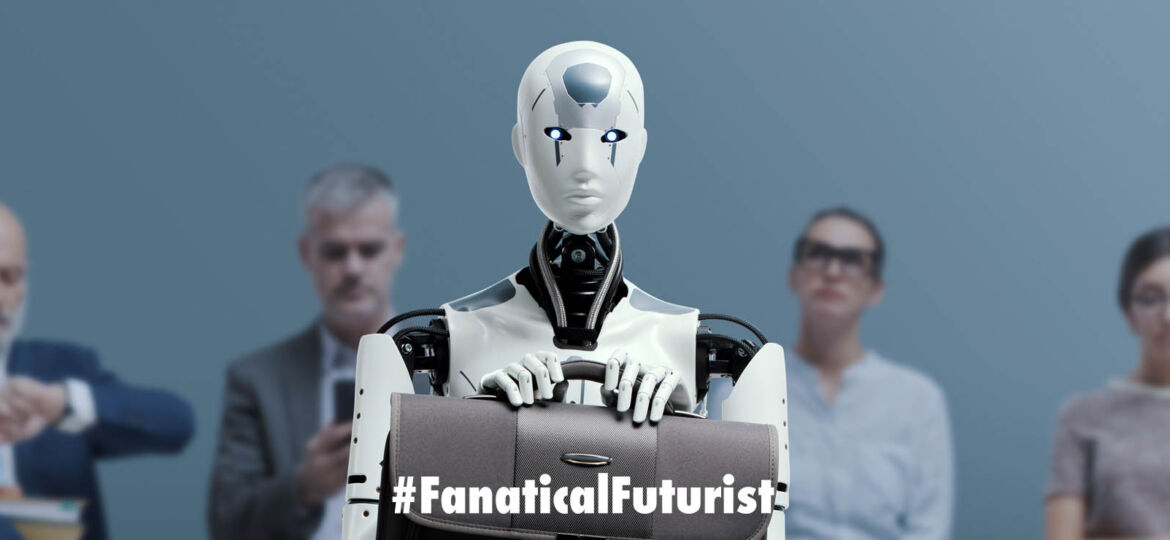
WHY THIS MATTERS IN BRIEF
Humans are lazy and by getting AI to do their work for them the people who are supposed to be training AI are opening up a Pandoras box of problems.
 Love the Exponential Future? Join our XPotential Community, future proof yourself with courses from XPotential University, read about exponential tech and trends, connect, watch a keynote, or browse my blog.
Love the Exponential Future? Join our XPotential Community, future proof yourself with courses from XPotential University, read about exponential tech and trends, connect, watch a keynote, or browse my blog.
A significant proportion of people paid to train Artificial Intelligence (AI) models may be themselves outsourcing that work to AI, a new study has found.
It takes an incredible amount of data to train AI systems to perform specific tasks accurately and reliably. Many companies pay gig workers on platforms like Mechanical Turk to complete tasks that are typically hard to automate, such as solving CAPTCHAs, labelling data and annotating text. This data is then fed into AI models to train them. The workers are poorly paid and are often expected to complete lots of tasks very quickly.
The Future of AI, by keynote Matthew Griffin
No wonder some of them may be turning to tools like ChatGPT to maximize their earning potential. But how many? To find out, a team of researchers from the Swiss Federal Institute of Technology (EPFL) hired 44 people on the gig work platform Amazon Mechanical Turk to summarize 16 extracts from medical research papers. Then they analyzed their responses using an AI model they’d trained themselves that looks for telltale signals of ChatGPT output, such as lack of variety in choice of words. They also extracted the workers’ keystrokes in a bid to work out whether they’d copied and pasted their answers, an indicator that they’d generated their responses elsewhere.
They estimated that somewhere between 33% and 46% of the workers had used AI models like OpenAI’s ChatGPT. It’s a percentage that’s likely to grow even higher as ChatGPT and other AI systems become more powerful and easily accessible, according to the authors of the study, which has been shared on arXiv and is yet to be peer-reviewed.
“I don’t think it’s the end of crowdsourcing platforms. It just changes the dynamics,” says Robert West, an assistant professor at EPFL, who co-authored the study.
Using AI generated data to train AI could introduce further errors into already error-prone models. Large language models regularly present false information as fact. If they generate incorrect output that is itself used to train other AI models, the errors can be absorbed by those models and amplified over time, making it more and more difficult to work out their origins, says Ilia Shumailov, a junior research fellow in computer science at Oxford University, who was not involved in the project, which could lead to a phenomenon called AI Model Collapse where essentially, over time, the AI models get worse and more stupid.
Even worse, there’s no simple fix.
“The problem is, when you’re using synthetic data, you acquire the errors from the misunderstandings of the models and statistical errors,” he says. “You need to make sure that your errors are not biasing the output of other models, and there’s no simple way to do that.”
The study highlights the need for new ways to check whether data has been produced by humans or AI. It also highlights one of the problems with tech companies’ tendency to rely on gig workers to do the vital work of tidying up the data fed to AI systems.
“I don’t think everything will collapse,” says West. “But I think the AI community will have to investigate closely which tasks are most prone to being automated and to work on ways to prevent this.”
















